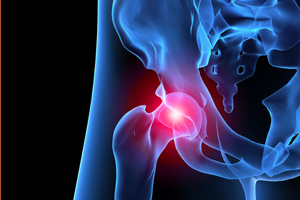
Attorneys for Johnson & Johnson (NYSE:JNJ) subsidiary DePuy Orthopaedics moved this week to prevent a couple of expert witnesses from testifying during a metal-on-metal hip implant lawsuit taking place in Ohio. DePuy asked Judge David Katz to block witnesses J. Dennis Bobyn and George Samaras from testifying in court.
Bobyn is a professor of biomedical engineering and surgery at McGill University, currently listed as "on leave." He testified during another DePuy trial earlier this year that the rate of adverse events associated with DePuy’s metal hip implants should have raised "red flags" as early as 2003, before the implants even hit the market, according to Law360.com.
In that lawsuit, brought by patient Loren Kransky, the jury in March ruled that DePuy’s ASR XL metal-on-metal hip implant was defectively designed, charging the device maker with negligence, but dismissing additional claims that J&J failed to properly warn physicians about the risks of its metal hip implants. J&J was ordered to pay Kransky $8.3 million in damages, and the company later asked the court to stay the jury’s decision while the company filed an appeal. The court in May refused to reverse the damages.
Samaras, a consultant, also testified in the Kransky lawsuit, according to a press release from patient injury law firm Parker Waichman LLP. Samaras told jurors that internal J&J documents showed that the AXR XL implant failed J&J’s own safety tests, prompting the device maker to change the test protocols.
Samaras and Bobyn were retained by the plaintiffs in a multi-district lawsuit that is slated to begin in September. Lawsuits against DePuy began piling up in June 2010 when a a Florida woman accused the company of knowing about the devices’ problems but failing to warn physicians. That suit was followed days later by 3 more from California residents who all had to have revision surgery after the implant partially detached from their hip sockets.
DePuy voluntarily recalled the ASR in August 2010 "due to the number of patients who required a second hip replacement procedure, called a revision surgery," according to a company report. A report passed around internally in 2011, in the midst of the high-profile recall, concluded that 37% of DePuy’s ASR hip implants would require revision or replacement in less than 4.6 years.

